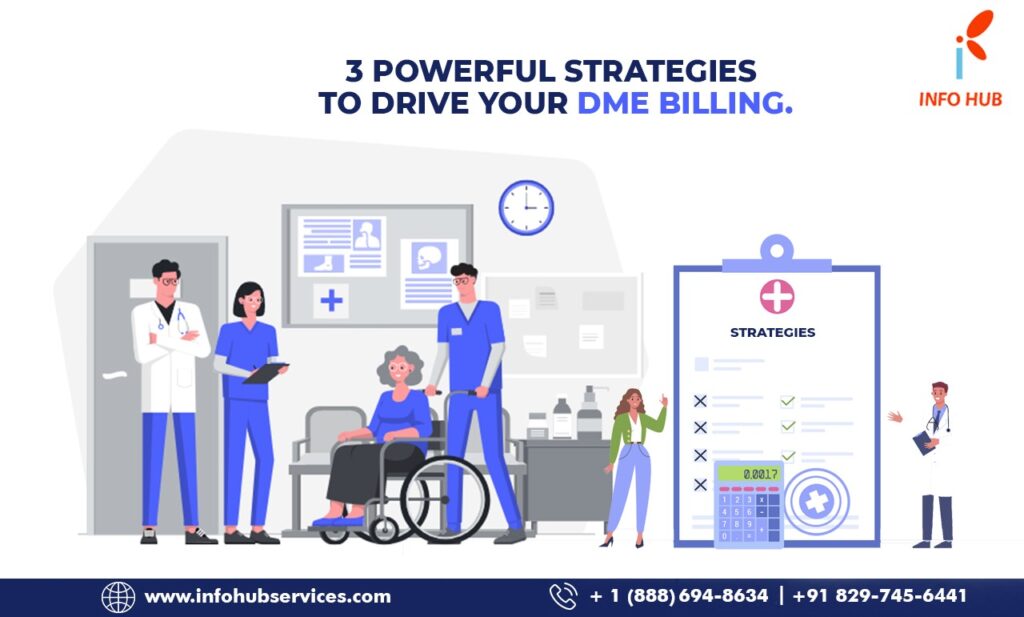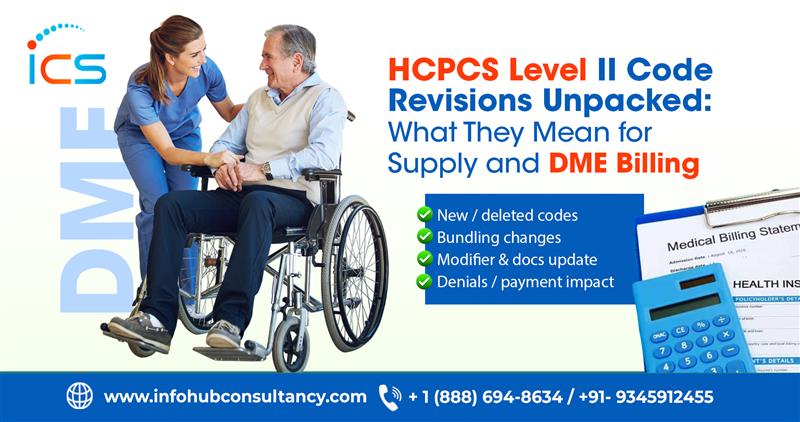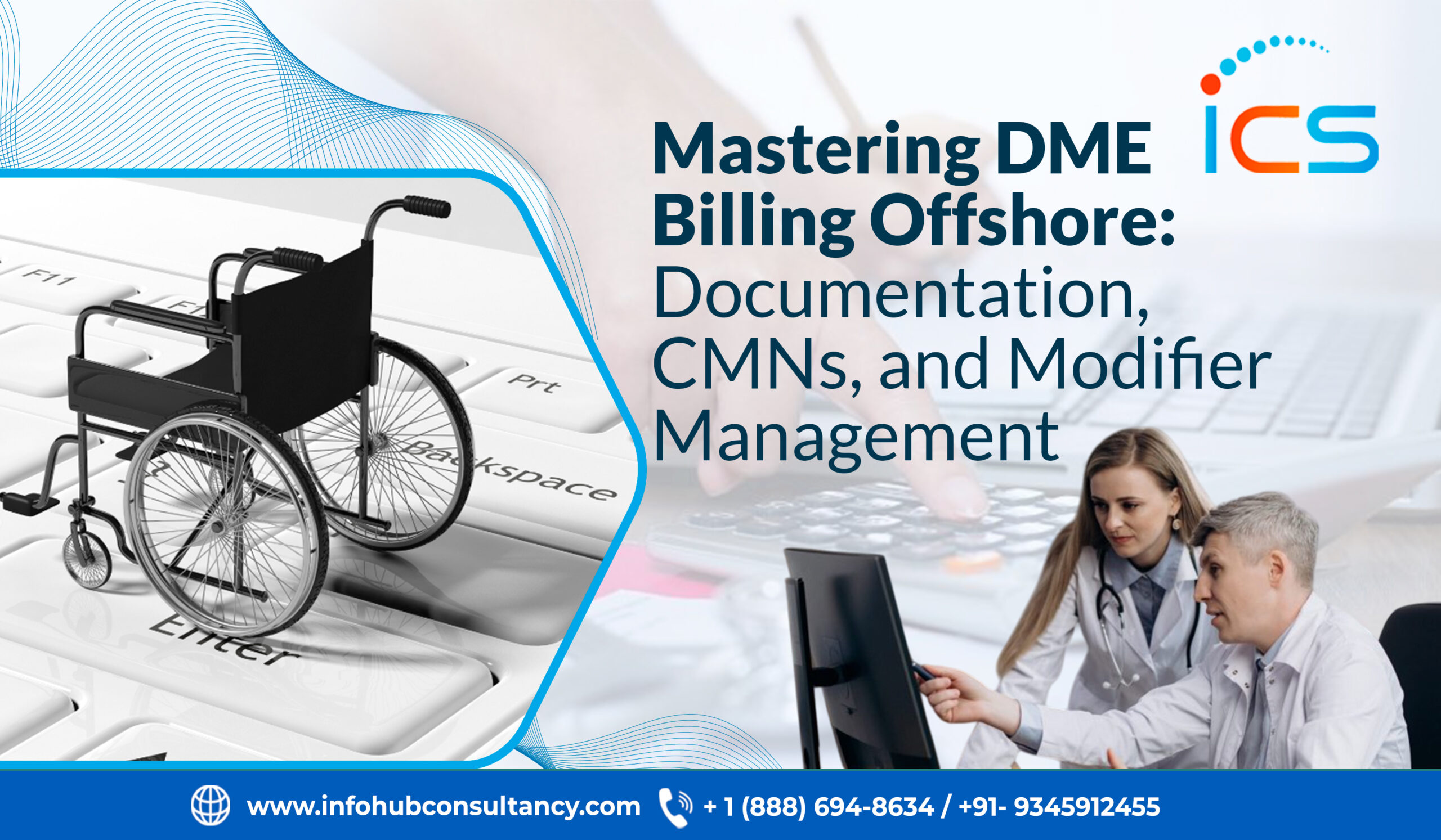Making sure the revenue cycle management is efficient is one of the cornerstones of the success of any DME facility. It also has a direct bearing on your service’s patient experience and your capacity for boosting the facility’s performance. Additionally, effective revenue cycle management enables you to cut errors and service expenses overall. However, without a qualified DME billing company, this is not feasible. A reliable offshore DME billing company will help in reducing errors, streamline the recordkeeping, billing, and coding process, and assist your DME facility in adhering to the most recent revenue cycle techniques for DME pricing and coding standards.
In order to boost the ROI to the highest levels, suppliers are now looking to increase their customer’s loyalty and satisfaction program. Low payments, modifications to medical rules, and all these present serious difficulties. Nowadays, more patients pay out of their pockets or do not know that however much they owe. The last thing a DME supplier wants after working arduously to deliver the equipment to the patient’s door is to have their payments rejected.
One of the biggest problems in the services is the DME industry’s reputation for undergoing ongoing modifications. The cost of employee training, decreased collections, billing mistakes, and suspension of operations due to staff absence are just a few of DME’s many issues. Any of these issues has the potential to reduce both the service’s overall productivity and its income.
Knowing the three-step financial approach to increase your DME income is urgently needed. Let’s quickly review each of these steps.
1. Verify the Legitimacy of the Insurance before Delivering it
By validating and proving insurance within a day or two before the planned insurance appointment, you can increase your charge-to-collection ratio. You can cancel the already planned appointment if you have any reservations about the insurance plan. Here’s a quick and simple method for checking your insurance:
a) Make a call to check on the insurance’s status.
b) EMR or billing software verification are both options.
c) Check your Payers coverage using online resources. Your time and effort can be used for more vital activities by outsourcing the verification process to a specialized DME billing company.
2. Timely Payment of Service Fees
You might not be aware of it, but the possibility of your collection falls by more than 45% after a patient departs your hospital. The co-insurance as well as co-pays, in addition to any previous dues and expected deductibles, must therefore be collected after the equipment has indeed been given. Therefore, it’s usually a good idea to have a thorough check-out procedure in place so that you can gather before the patient departs the hospital. There are many technology-based possibilities for modernizing the RCM process. Payment variance software, for instance, can assist you in determining the tendency of excess or underpayment. It might help your DME to generate a steady income. Some tools, such as integrity tools, can aid in boosting revenue. The tiresome, repetitive work that must be done prior to the code review, authorization, and application status checks can also be done by bots using the automation procedure that permits their use. These can all be completed more quickly and accurately than by people.
3. Performance Evaluation and Data Gathering
The DME revenue process could become less effective if the person who has access to the data does not take ownership of their task or work performance. As a result, make sure that everyone on your team is continually coordinating and understanding who has access to what information and who is responsible for what performance. The accuracy of the alignment can be checked utilizing technology like tracking and reporting metrics.
There may be instances where claims are refused and denied. To be able to resubmit and modify them, it is essential to first understand the distinction between the two. Rejecting a claim is frequently like giving up; the account must be modified or appealed. On the other hand, there is still hope for claim denials where the payer needs to provide further information, authorization, or code updates. Within 24 hours of receipt, the problem must be resolved, whether such a claim is rejected or refused. The more quickly it is examined, the more likely it is that the claims will be paid.
By organizing and maybe even outsourcing DME billing as well as complaints management processes, you can increase the effectiveness of your DME services and enable a much more efficient A/R collection procedure. To keep the RCM process lucrative, you must make sure payments are being made. You also avoid the hassle of having to train your workers, which lowers your overall operating costs. When you can concentrate on the patient while leaving the DME billing and coding to an offshore medical billing company like Info Hub Consultancy Services (ICS), you will have a better RCM, which will result in an improved patient experience.

 5 mins read
5 mins read 







.png)

